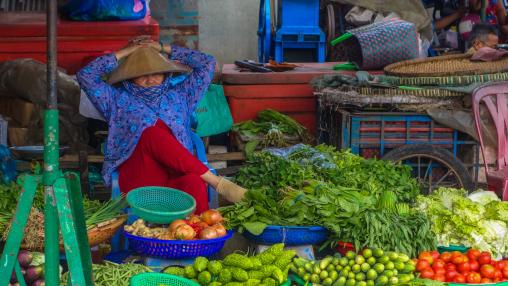
New Cost of Healthy Diets Tool provides powerful look at nutrition gaps—and how to solve them
In recent years, it has become increasingly recognized that true food and nutrition security depend not just on consumption of an adequate caloric quantity of food but also on consumption of the right types of food. A healthy diet—which the WHO and FAO define as one characterized by adequate, balanced, moderate, and diverse consumption of safe foods and beverages—is essential in supporting long-term physical and cognitive health, development, and well-being and in preventing diseases and damaging nutrient imbalances.
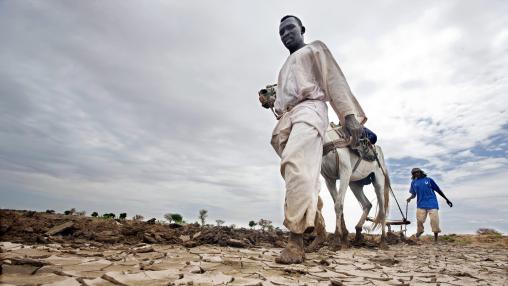
Acute Food Insecurity Continues to Rise throughout Africa South of the Sahara: Global Report on Food Crises Released
Conflict, extreme weather events, and economic shocks led to worsening food security outcomes throughout much of Africa south of the Sahara in 2024, according to the recently released 2025 Global Report on Food Crises. While a number of countries saw improvements in their levels of acute food insecurity, all regions saw an overall increase in the number of acute food-insecure people.
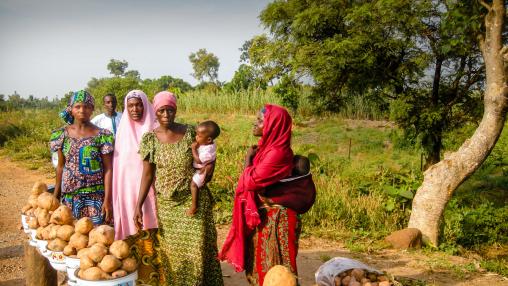
Integrating gender and nutrition into climate policy: Insights from the GCAN Initiative in Nigeria
Climate change impacts—including increasing temperatures, shifting rainfall patterns, and intensifying extreme weather events—have hit Nigeria hard, reducing agricultural productivity, driving up food prices, and limiting access to nutritious food. Climate-related damage to roads, irrigation, education, and health care infrastructure has also undermined food production and access to essential services.
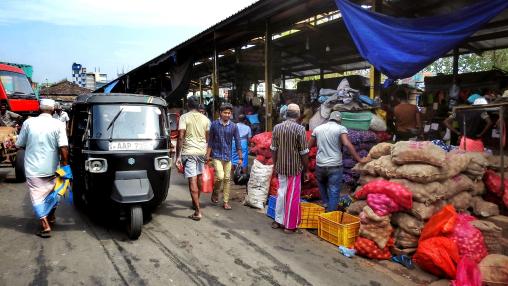
Rising food insecurity, waning humanitarian assistance: 2025 Global Report on Food Crises released
The world faced a stark inflection point in 2024, as the continued rise in the number of people facing crisis-to-catastrophic levels of acute food insecurity meets sharp reductions in funding for humanitarian assistance. The 2025 Global Report on Food Crises (GRFC), released today, reports that 295.3 million people across 53 countries/territories faced acute food insecurity in 2024. This represents a tripling of the number of people facing acute hunger since 2016 and a doubling since 2020 (Figure 1).
Figure 1
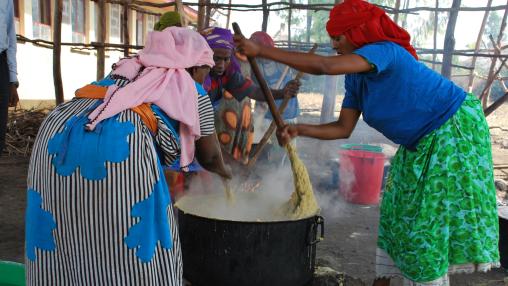
Ethiopia’s health and nutrition data gap and what it means for public health
In a world where data drives decisions, the importance of high-quality health and nutrition data cannot be overstated. Reliable data is the backbone of effective policymaking, intervention planning, and resource allocation—all critical for improving public health outcomes. For Ethiopia, a country grappling with significant health and nutrition challenges, the need for consistent, accurate, and timely data has never been more urgent.
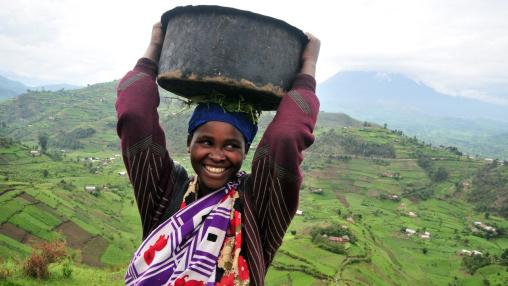
Using Policy to Drive Agrifood Transformation: Lessons from Uganda
Despite Uganda’s rapidly growing economy, as many as 34.6 million people continue to face food insecurity. More than 72 percent of the country’s population cannot afford a healthy diet, and both undernourishment and overweight/obesity among adults pose a growing challenge. To successfully confront these challenges and encourage the sustainable transformation of Uganda’s agrifood system, stronger policies and enhanced collaboration are needed, according to a recent brief from FAO.
Deepening Social Protection Systems: Enhancing livelihoods and health in Ethiopia
Twenty years after the establishment of Ethiopia’s Productive Safety Net Program (PSNP), a major social protection system, the country’s government, donors, and other stakeholders are implementing multidimensional graduation model programs that are designed to complement the PSNP’s monthly food and cash transfers. Graduation models include multiple interventions such as large asset or lump-sum transfers, training, savings promotion, and other forms of nutrition, health, or psychosocial support.
Nutrition-Sensitive Irrigation in Mali: Guidance for Progress on Water, Food, and Nutrition Security
Irrigation contributes to agricultural intensification and farm profitability, helps farm households extend the growing season, and is increasingly important for farmers' resilience to climate shocks and stressors. Until recently, less attention was paid to the other benefits of irrigation, including improvements in household food security and nutrition, health, and women's empowerment.
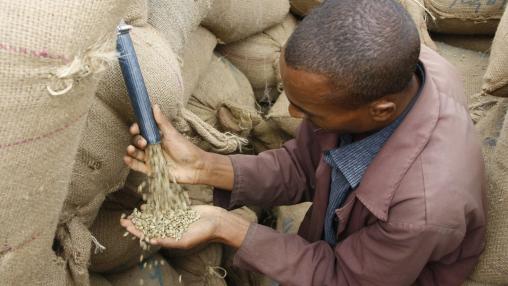
Recipes for Success: A Policy Guide to African Food Systems Transformation
Africa’s trajectory to emergence and self-sufficiency has seen significant progress in achieving global and continental milestones such as the Sustainable Development Goals (SDGs) and the Malabo Declaration. However, food security and improved nutrition remain a challenge, and current trends suggest that the continent is not on track to achieve Zero Hunger (SDG 2) by 2030. Evidence suggests that one in five people faced hunger in Africa in 2020 – more than double the proportion of any other region.
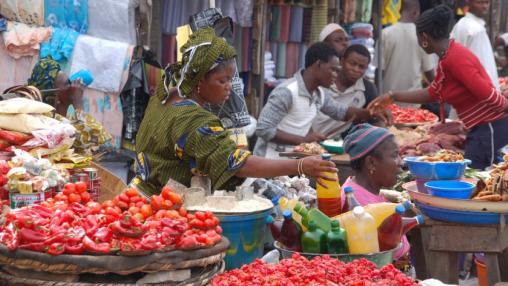
Transform Nutrition West Africa: Time to build on the momentum
This post originally appeared on IFPRI.org
The COVID–19 pandemic, ongoing conflicts, and other problems made 2020 a difficult year for global nutrition. Knowledge will be crucial in addressing current nutrition issues and advancing the nutrition agenda for 2021 and beyond. Transform Nutrition West Africa (TNWA), a project led by IFPRI and funded by the Bill & Melinda Gates Foundation from 2017-2021 and now concluding, has worked to put stakeholders and knowledge generation at the heart of decisions about policies and programs for maternal, infant, and young child nutrition.